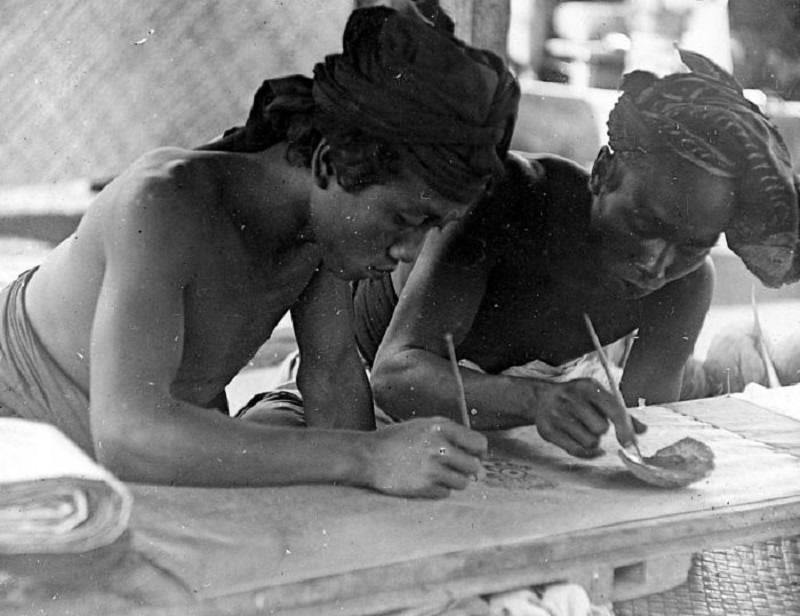
From March 2024 KITLV will run a new pilot-project on the coloniality of Asian library and manuscript-formations. With KITLV Special Collections as point of departure, we study the social biographies of manuscripts, and the colonial histories of collecting, to gain insight into the role of violence therein, and to recognize local agency in the makings of so-called Asian Libraries. The KITLV’s Special Collections thereby provide a prism to understand what unpacking ‘the Asian Library’ may reveal.
The manuscript and book collection of KITLV (founded in 1851) is one of the largest covering the region that is today Indonesia, and has, an important Caribbean collection. It is well known that a large part of this collection has a colonial origin, as it was shaped by, and embedded, in the context of Dutch colonial history, mainly regarding the – then – so-called East- and West-Indies. Little do we know, however, about the ways manuscripts have been collected locally, or about the context, the power relations, the violence, and the mechanisms of selection that formed the base of collecting.
In light of present societal and scholarly debates about colonial loot and restitution and about collecting practices and knowledge production, it is important to gain insight into the ways this collection came to be and has been used, and in the influence and agency of colonial and local actors in shaping these collections. This may help to develop new research questions on the forms, histories and politics of knowledge, beyond those defined by political, institutional, and disciplinary framings that made items in this collection end up in Leiden.
To that double aim, this Pilot Project will run at KITLV for a period of 2 years. On the base of selected case studies, we follow two approaches, both geared towards understanding the collection’s provenance: the one concerns the socio-political biography of sub-collections and individual manuscripts, the second focuses on histories and practices of collecting and knowledge production. Both approaches gauge the role and nature of violence (including epistemic violence), and aim to recognize local agency in the makings of the collection. In the end we hope to get a broader picture of the contexts, power relations, and conditions of collecting practices, and to develop methods, tools, and questions that can be of use for future research on the politics of knowledge that shaped (colonial) library collections.
Marieke Bloembergen
(project leader / supervisor, KITLV/Leiden University)
Alicia Schrikker
(co-supervisor, Leiden University)
Mirjam Shatanawi
(postdoc, KITLV)
Otto Stuparitz
(postdoc, KITLV)
Verena Meyer
(external research member, Leiden University)
Tiara Driehuis
(intern, Leiden University)
Annabel Gallop
(British Library)
Aditia Gunawan
(Perpustakaan Nasional)
Tom Hoogervorst
(KITLV & Library Commission Vereniging KITLV)
Marieke van Meer
(Leiden University Library)
Wayan Jarrah Sastrawan
(Australian National University)
Bali: Writing on Lontar sheets [Bali: Schrijven op Lontarbladen]. Collection Wereldmuseum.



